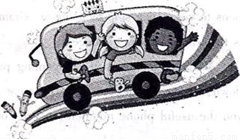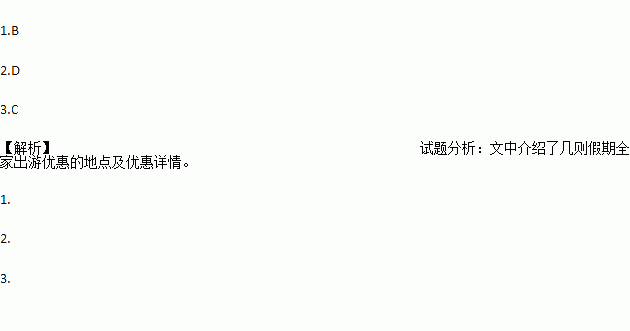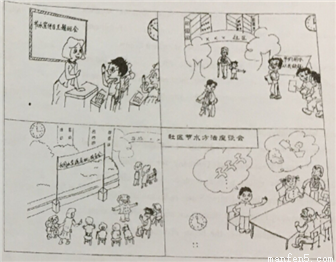题目内容
Keeping the kids busy over the school holidays can be discouraging and cost parents a lot. But we’ve found some cheap and cheerful ways to enjoy family time this Easter from free days out to fun-filled theme parks which won’t cost us much. We’ve done the homework so you can get started on having a great time.

Theme Parks
? Save from 10% to 25% off the price of tickets for Legoland in Windor by booking in advance online. A family of four can save up to ?45.90 on a one-day ticket, paying ?137.70.
?Book seven days in advance and save ?43 off the price of a family of four tickets for Drayton Manor Theme Park. Call 0844-472-1950 or book online and you’ll pay ?65 on the day.
? You can pick up a family of four ticket for a day at Alton Towers in Staffordshire for ?43.80 off the day price.
? Save ?16 off the price for a family trip to The Making of Harry Potter by buying a family ticket (two adults and two children) online. Family of four ?101, compared to ?117.
Activities
Students looking for a cut-price trip to see the animals can save 15% off the ticket price at Bristol Zoo and pay ?12.71 rather than the full adult price ?14.53. Teens should show their identity as students.
Freebies(免费赠品)
Let your kids discover what it’s like to be an animal on the African Plain in the ocean. Or, they can learn to love leaf beetles(甲壳虫) or become a scientist for the day at the Natural History Museum in London.
1.Which of the following theme parks can save you most on Easter Day?
A. Alton Towers. B. Legoland in Windsor
C. Drayton Manor Theme Park. D. The Making of Harry Potter.
2.How can tourists enjoy a cut-price trip at Bristol Zoo?
A. By showing their birthdays and birthplaces.
B. By showing their family addresses
C. By showing their driving licenses.
D. By showing their students’ cards
3.Who is the text mainly intended for?
A. The students. B. The scientists
C. The families D. The kids


